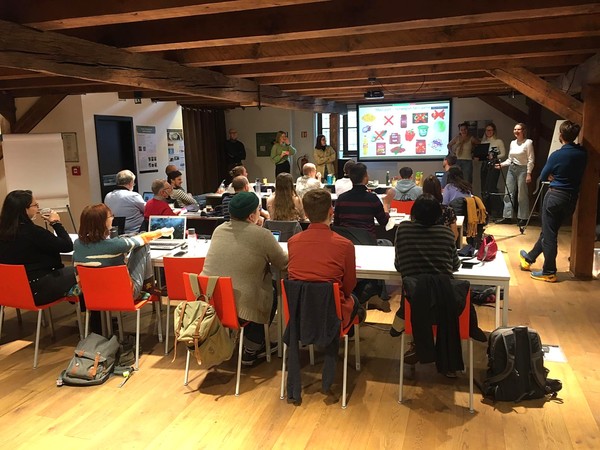The international project EduChange 2.0 is focused on the use of mobile and web tools and other means of information and communication technologies in the creation of special teaching and awareness-raising activities focused on climate change. The project was prepared by the Department of Development and Environmental Studies of the Faculty of Science for the years 2020 to 2023 for students not only in teacher training. The project also includes annual field excursions. This year, a group of students from four countries travelled to Fort Science.
According to Jiří Chovaneček from the Department of Development and Environmental Studies, teacher training students want to use mobile applications and web tools incl. geographic information systems in teaching focused on climate change, in order to make teaching focused on this important topic as efficient and attractive as possible. “Our project EduChange 2.0 therefore focuses primarily on working with tools that support active citizenship through innovative geoparticipatory methods for solving environmental problems,” he said.
The project also involved experts from the universities of Malta, Utrecht, and Trondheim and from the Finnish start-up company Seppo, which is creating a new type of pedagogical applications combining social learning and versatile ways of using mobile technologies. “With the help of this project, we are trying to develop skills and abilities in the field of creating geoparticipatory mapping platforms and using mobile applications and games,” said Chovaneček.
The first activity of the annual EduChange 2.0 cycle was an international excursion. It was attended by 19 students at Fort Science, who, in addition to lectures and workshops, also focused on the development of their own games and educational activities. The course was praised by Matthew Grech of the University of Malta. “This course is a great way to gain a deeper understanding of the importance of climate change education through a common understanding of the humanity of others. Whether we come from Norway, the Netherlands, the Czech Republic, or Malta, no matter which languages we speak, we have a certain background and we have a certain experience. It’s something that unites us all.”
Man-made climate change has become increasingly pronounced in recent years, according to Chovaneček. “We are witnessing bush fires in Australia, rising ocean temperatures and melting sea ice at the North Pole. Surveys of high school students in Amsterdam have shown that most young people are convinced that climate change is underway and that it is man-made. However, young people’s views on the severity of the effects of climate change vary widely, and many think that climate change is more of a problem elsewhere and for the distant future,” he said.
